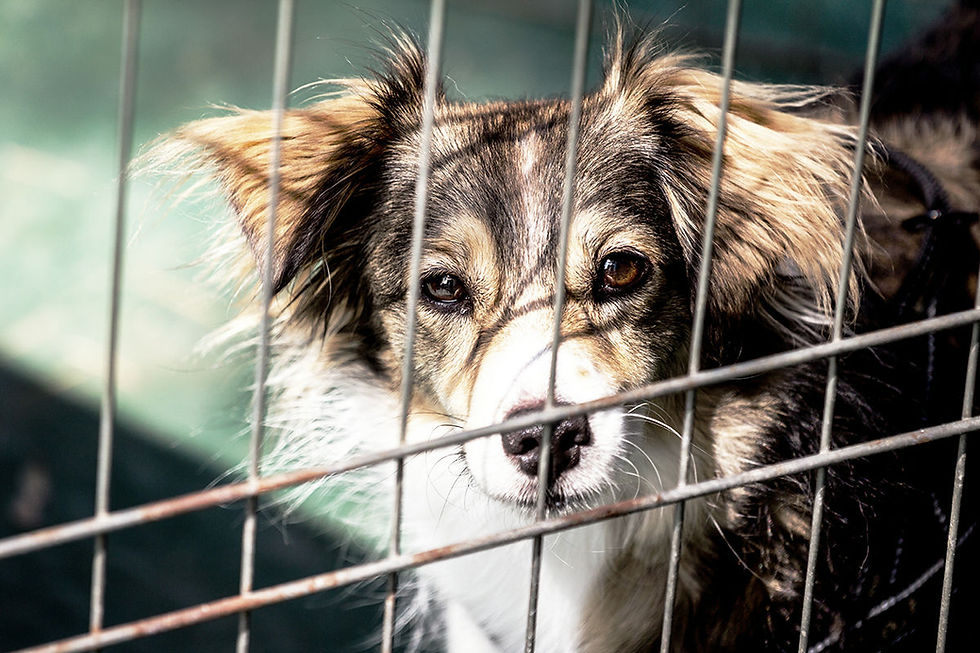Adopting a rescue dog? Tips for settling in and promoting a great start.
- Calm Canines Wiltshire

- Jan 30, 2024
- 2 min read
Updated: Mar 3, 2024

Firstly, congratulations on deciding to adopt a rescue, whether that be from a rehoming centre, from a home or from abroad. Taking on a rescue is hugely rewarding, depending on the history and circumstances of the dog you are adopting there may some challenges along the way. This is a quick guide to help you avoid any pitfalls in the first few weeks of welcoming your new dog into your home.
Decompression Time:
Give your new dog time and space to decompress. Rescue dogs may need some quiet time to adjust to their new surroundings. Create a safe and comfortable space where they can retreat and feel secure. Remember from your dog's perspective, their life has been turned upside down, everything is new including you! Although your first instinct may be to smother them with love and attention the best course of action is to give them space and let them come to you when they are ready. Don't expect or ask too much, just allow them to explore, observe and gain confidence.
Housetraining:
Establish a consistent house training routine. Take your dog outside frequently, especially after meals, sleep and playtime. Positive reinforcement of successes will help reinforce wanted behaviour.
Importance of Getting to Know Each Other:
Building trust takes time. Spend quality time bonding with your new companion through gentle play, walks (if they are ready) and positive interactions. It is well worth learning some canine body language cues so you can pick up how your new dog is feeling and avoid any situations they may find stressful or overwhelming.
Don't Rush:
Avoid overwhelming your dog with too much too soon. Introduce new experiences gradually, whether it's meeting people, exploring new places, or encountering other pets. Patience is key to a smooth transition. Avoid taking your new dog out for the first week or so (and if they are nervous then extend this).
Gradual Socialization:
Slowly expose your dog to new environments, people, and animals. Gradual socialization helps prevent anxiety and ensures positive experiences. Pay attention to their body language and adjust the pace accordingly.
Everything Is New:
Recognize that everything is new to your dog – from your home to smells, routines, and other pets. Be patient and understanding as they adapt. Consistency and a calm environment aid in their adjustment.
Routine and Predictability:
Establish a routine to provide structure. Dogs thrive on predictability, so consistent feeding times, walks, and play sessions create a sense of security. This helps your dog understand what to expect.
Vet Check-Up:
Schedule a thorough veterinary check-up to address any potential health concerns. Knowing your dog's health status allows you to provide appropriate care and ensure they start their new life in good condition.
Positive Reinforcement:
Reward positive behavior with treats, praise, and affection. Utilising positive reinforcement not only encourages good behavior but also fosters a stronger bond between you and your rescue dog. Remember every dog is unique, so adjust these tips based on your dog's individual needs and personality.
This is a basic guide, some dogs settle pretty well and adjust quickly to their new life and home, others may take longer and have some struggles along the way. If you have any concerns then please do not hesitate to contact me for more in depth help and advice.




Comments